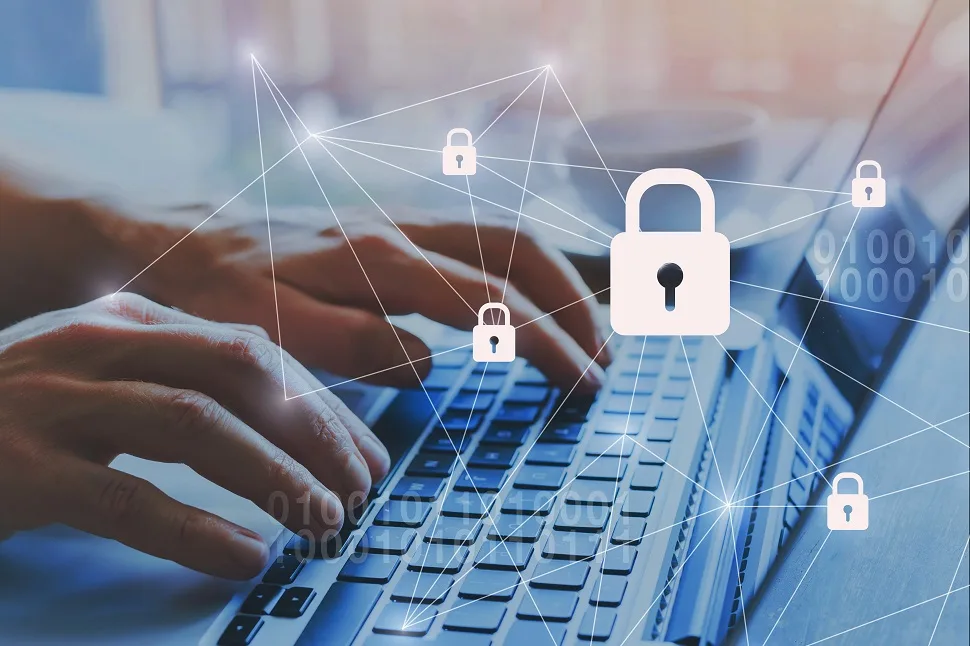Table of Contents
Updated by 10.02.2024
Best Practices for Enhancing Your Business’s Call Center Security

Phishing scams, data breaches, and identity theft are universal security risks to call centers since they handle massive amounts of customer data.
The global average data breach cost is $4.45 million – far too high for any company to pay. As a payment processor provider with hundreds of clients, E-Complish is all too aware of these call center security challenges.
But by following the best practices outlined in this blog, you can protect your call center’s operations and maintain call center security standards.
Data Security Challenges Call Centers Face Every Day
Common call center security threats are:
- Data breaches: Unauthorized access to customer information by employees or hackers, leading to fraud and identity theft.
- Phishing attacks: Malicious actors send fraudulent emails impersonating legitimate sources, resulting in stolen sensitive data such as login credentials or credit card information.
- Social engineering: Hackers psychologically manipulate or trick people into revealing sensitive information or performing actions that may compromise the security of a computer system or network.
- Internal threats: Employees may exploit their knowledge of the company’s systems and networks to launch targeted attacks.
Keeping up with the constantly evolving security landscape is essential, but call centers must address immediate customer data security challenges and vulnerabilities by following the guidance below.
How to Protect Customer Data: A Comprehensive Guide

1. Employee Training and Awareness
Your call center agents should understand your privacy policy and be equipped with the latest data protection strategies. As technology is ever-changing, it’s important to provide ongoing support and guidance to ensure they stay up-to-date.
One way to guarantee that everyone is well-informed and fully prepared is to provide various training options, such as self-paced online videos or interactive face-to-face sessions.
Regardless of the method, all employees should possess essential security management skills before accessing sensitive data, such as knowing how to:
- Identify phishing attacks
- Use multi-factor authentication
- Report suspicious activity
- Implement social media discretion
- Avoid clicking on suspicious files or links
2. Reduce Dependence on Verbal Data Sharing
Increasingly, call centers are replacing a traditional voice-based collection of sensitive data with representative-generated text-to-pay, chat-to-pay, email and SMS payment links, and live-call automated payment assistance. These payment options are inexpensive, secure, and trustworthy.
Call centers that adopt these payment solutions increase efficiency, boost customer engagement, and improve customer satisfaction. Additionally, this satisfies PCI DSS and NACHA compliance.
Our E-Complish SMS Payment Link service offers a user-friendly way to bill and accept payments while reducing late and missed payments.
3. Secure Communication Channels
As part of call center security best practices, many call centers implement SSL / TLS encryption to protect sensitive customer information, which utilizes sophisticated algorithms to scramble data into ciphertexts. Only authorized individuals with the correct authentication can access and read it.
Other methods to keep customer information safe include E-Complish’s telephone payment assistant CallSentry, which allows customers to enter their sensitive cardholder data during a call with a representative without the risk of the representative hearing or accessing it.
This advanced telephone payment system provides a seamless and secure transaction process for businesses that are also PCI compliant.
4. Advanced Access Controls
Multi-factor authentication and role-based access control (RBAC) are growing standards for protecting sensitive data across various platforms:
- RBAC: Employees only gain access to the information they need to fulfill their responsibilities. For example, data entry specialists can access the system to update customer information without call-handling tools. Because RBAC restricts unnecessary access to sensitive information, it decreases the risk of data leakage and breaches.
- Two-factor authentication: Add an extra layer of security when accessing systems that involve a password or PIN followed by a fingerprint, security token, or one-time code sent to a personal device. Even if a bad actor obtains the password, they still need access to the second authentication factor, making it harder to exploit stolen credentials.
5. Regular Monitoring and Auditing

Overall, implementing call and screen recordings adds an extra layer of security by promoting process improvement, maintaining quality standards, and providing a means of verifying interactions.
Call recordings are integral to the dispute resolution process, particularly when the matter progresses to a lawsuit. In this case, businesses should have a recorded record of customer-agent telephone conversations and, if possible, a written transcript.
Recordings provide evidence of what was discussed during the call, whether a significant issue or a simple misunderstanding. Moreover, call recording and storage are mandatory for compliance in specific industries such as finance, telemarketing, and retail.
6. Incident Response Management
Call centers utilize incident response plans (IRPs) to sustain customer service, data protection, and regulation compliance. These written protocols help agents prepare, respond to, and recover from cyber breaches.
IRPs designate qualified personnel and establish the correct procedures to address security issues. This facilitates systematic investigations with streamlined digital forensics, better recovery time, and reduced customer churn
Without an IRP, your staff may miss call center security threats and be ill-equipped to mitigate them. The National Institute of Standards and Technology (NIST) provides in-depth guidelines for building your IRP.
7. Compliance with Legal Standards
Payment Card Industry Data Security Standard (PCI DSS) is a minimum level of security call centers must meet since their processes frequently require customers to share sensitive credit card information over the phone.
Everyone from customer service reps to IT support teams must be PCI compliant by law. There is also the General Data Protection Regulation, a European Union regulation applicable to any company that makes its services available to EU citizens.
Non-compliance may result in legal and financial penalties ranging from $5,000 to $100,000 or more, excluding legal and settlement amounts, which underscores the necessity of having a payment system up-to-date with compliance regulations.
8. Technological Enhancements for Sensitive Data Security

Secure payment systems and automated data handling reinforce data can help your call center reinforce security:
- Secure payment systems use advanced technologies and protocols to protect customers’ sensitive financial information, such as credit card numbers. This includes encryption, tokenization, and secure socket layer (SSL) technology to safeguard data transmitted from the customer to the call center and vice versa.
- Automated data handling, on the other hand, refers to using automated tools and software to process and manage customer information. This includes automatic routing and scripting systems that facilitate efficient call handling, databases, and customer relationship management (CRM) systems that store and manage customer data.
Conclusion
Your call center security checklist should include partnering with a reliable payment processor. A trustworthy partner with secure payment systems and automated handling is crucial for safeguarding customer information and improving security awareness.
This extends beyond simply processing transactions; it involves placing a critical element of your business, regardless of its size, in the hands of a provider equally dedicated to maintaining the highest data security standards.
Seeking secure payment tools for your security center? Our team is here to help you with tailored solutions.
Table of Contents

